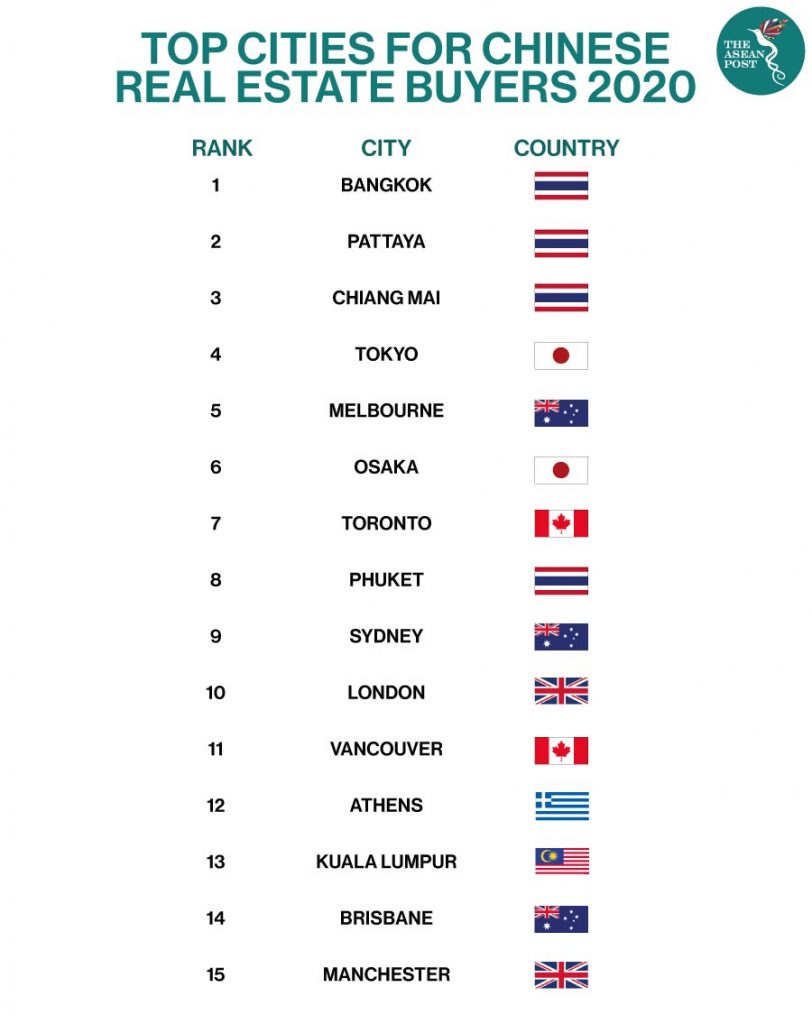China: The Real Estate crisis pushes Chinese to invest oversea

China’s real-estate sector is experiencing difficulties in 2022. Some of China’s most prominent developers are struggling to overcome a crisis that has been growing for months.
The Real Estate crisis in China
Two major credit rating agencies have downgraded Shanghai-based developer Shimao Group to junk status. To reduce its debt, the company is looking at selling properties.
S&P Global Ratings cut Shimao’s credit rating from B- to reflect the fact that “Shimao has suffered significant liquidity problems — this decline is much more severe than we had anticipated.” S&P still rated Shimao investment-grade two months ago. “We now consider the company’s liquidity weak.”
Moody’s cut Shimao’s rating from B2 to Monday. They cited “elevated” liquidity risk, a large amount due in the short term, and weakening funding access.
The Chinese media outlet Caixin reported Shimao had put up for sale all its domestic real-estate projects, as the cash-strapped company scrambles for assets to sell. According to the report, Shanghai Shimao International Plaza (one of Shanghai’s tallest skyscrapers) could be sold to the city’s government-owned companies for more than 10 million yuan ($1.6billion).
Shimao on Tuesday denied in a Hong Kong stock market filing that it had entered into any preliminary agreement regarding the disposal of Shanghai Shimao International Plaza.
China boasts one of the highest homeownership rates in the world, at 90 percent in 2020.
Cost-Effective Agency
KPI and Results focused. We are the most visible Marketing Agency for China. Not because of huge spending but because of our SMART Strategies. Let us help you with: E-Commerce, Search Engine Optimization, Advertising, Weibo, WeChat, WeChat Store & PR.

This is due in large part to the fact that property can be seen as a source for economic stability and security. This phenomenon also has a cultural component. Traditionally, a house is a requirement for marriage, especially for men. To help their children with their marriages and futures, friends and families will pool their money.
However, the cultural factor is often exaggerated, especially considering that homeownership is a significant marker of middle-class status in many areas of the globe. Also, it is clear that purchasing a home, and even a second or a third home, has become a smart financial investment. We discuss this further below.
This has led to an increase in home prices over the past two decades. In 2020, the national average was RMB 10,000 (US$1,571)/square meter.
Chinese Real Estates developers invest oversea
As Beijing tightens its screws to restore order at home, Chinese developers’ overseas spending spree ends
According to Real Capital Analytics, Chinese developers have made overseas investments of US$1.9 billion this year. This compares to a record high of US$17.5 trillion in 2017.
Despite regulatory pressure, companies such as Guangzhou R&F Properties or Greenland Holdings still invest in Australia and the UK.
Chinese developers were the largest investors in overseas properties this year. Analysts predict that their investments will continue to slump as Beijing tightens capital outflows and reduces risky borrowings to improve financial health.

Europe is still a safe investment destination for Chinese investors
China has made Europe their preferred playground in the West. Europe has been attracting both state-owned and private Chinese companies looking to invest in Europe for many years. This is despite the cultural, historical, legal, linguistic, and societal complexities that investing in the European Union can bring.
Investment is not linked with tourism.
Chinese companies seek a stable and legally secure environment. While there was not much Chinese investment in Europe during the first decade, figures from 2010 indicate a significant increase.
A joint report by Baker and McKenzie and New York’s Rhodium Group shows that the stock of Chinese investments in Europe rose from US$ 6 billion (about S$ 8 billion) in 2010 to US$55billion in 2014. Annual investment increased from US$18 billion in 2014 to US$23 billion between 2015 and 2015. Bruegel, a Brussels-based economic think tank, estimates that Chinese outbound foreign direct investments (FDI) flow as follows: 13% in Europe (stock US$13.9 billion), and 13% in North America (stock US$11.4 trillion), which has also been a significant recipient.
Asia is the top real estate investment for the Chinese middle class
Investors have sought refuge from the Chinese real-estate debt crisis in pockets of the wider Asian credit market. They cite India as an example of an opportunity that is relatively safe from the historical turmoil.

Goldman Sachs Group Inc. recently took a positive position on Asia high yield bonds. Data from Bank of New York Mellon Corp. indicate that South Korea, Indonesia and Singapore, India, Malaysia, Malaysia, and Japan all saw capital inflows to the corporate debt during the three-month period ending Jan. 18. China, however, experienced outflows.
After taking a beating last year, the Chinese property dollar bonds rose in recent sessions due to a series of policy measures to relax restrictions on the real estate industry and provide broader monetary stimulus. According to Goldman, the outlook remains uncertain with more defaults anticipated.

The failures will not get out of hand, which may sustain interest in the Asian market’s other areas. However, any prolonged crisis could cause an economic slowdown across Asia. The Chinese debt is a significant part of regional indexes. Investors may decide to withdraw completely.
Inflation is still rising, so there are losses in broader Asian bonds. These have been there worldwide. But they have been milder. All ratings of dollar notes from Chinese issuers lost 3.7% in 2022, despite a recent rally for property developer securities that was sparked in part by policy support.
There are many risks in the wider Asian credit market.
CreditSights stated that valuations of Asian credit have been pushed to the limit by investors looking for diversification. It said that many South and Southeast Asian names are not eligible for a market rating, despite having strong fundamentals.
After taking a beating last year, the Chinese property dollar bonds rose in recent sessions due to a series of policy measures to relax restrictions on the real estate industry and provide broader monetary stimulus. According to Goldman, the outlook remains uncertain with more defaults anticipated.
The failures will not get out of hand, which may sustain interest in the Asian market’s other areas. However, any prolonged crisis could cause an economic slowdown across Asia. The Chinese debt is a significant part of regional indexes. Investors may decide to withdraw completely.







I am looking for investors in a 100acre land just outside Georgetown (capital city of Georgetown Guyana). Exon mobile is building their headway quarters just a mile away from the site.
Marriott has plans to build another hotel nearby. The Chinese are bidding for further oil & gas contracts. The place Will be booming.
A gated community with high end villas. We have ties to the government. I am looking for honest Chinese investment backed by the CPP. With investment Chinese labour and materials Will be needed.
4 partners/ 2 china and all loans paid equally. 12 million for 50 %land ownership. 300© profit guaranteed.
Ps.see Windsor estates Guyana on utube. Bigger and better envisioned.
Karl